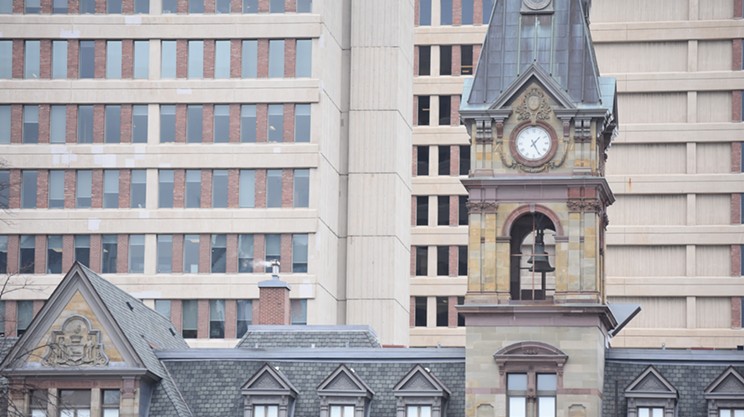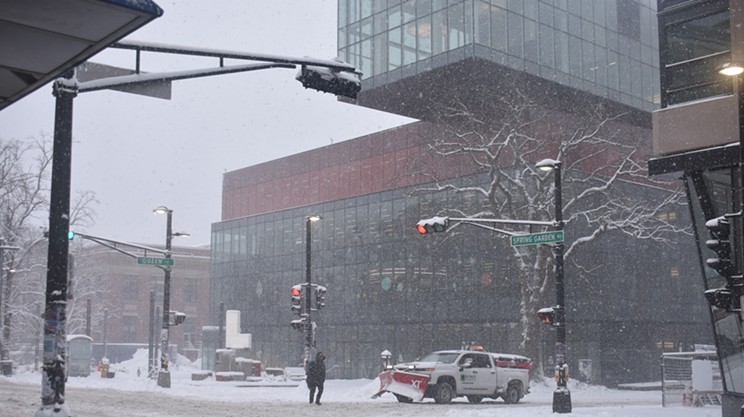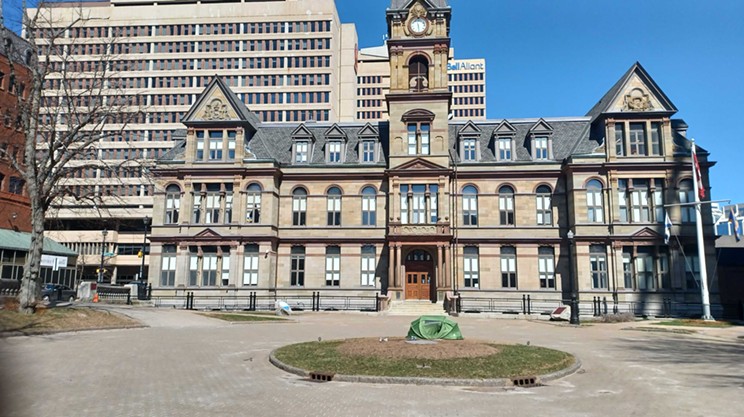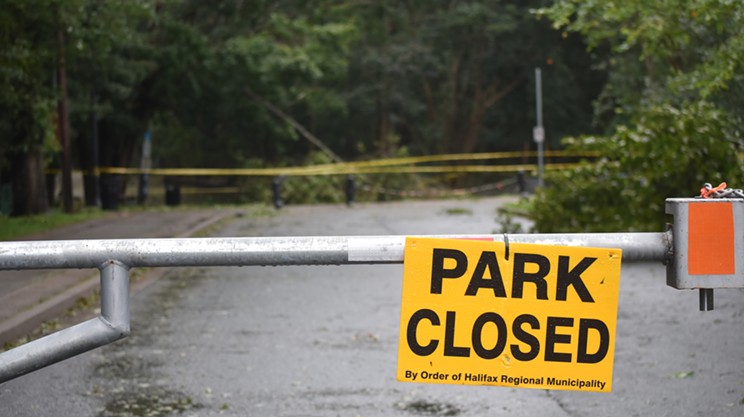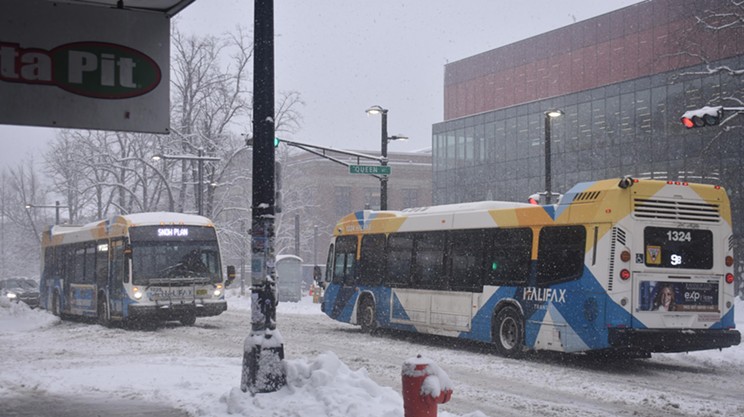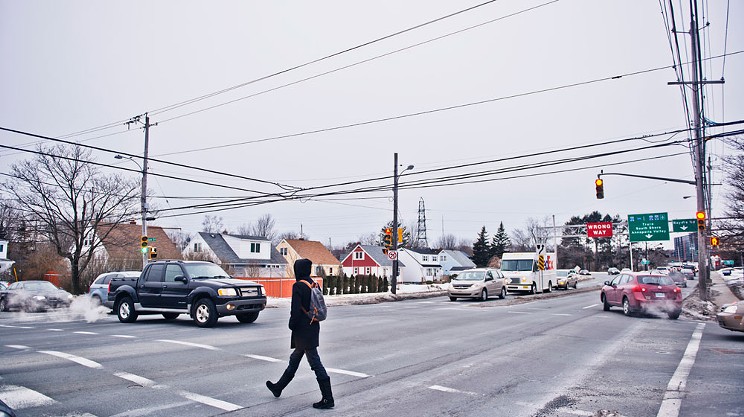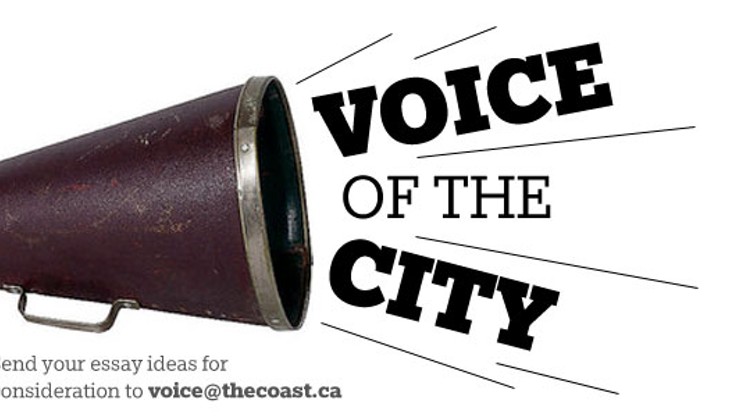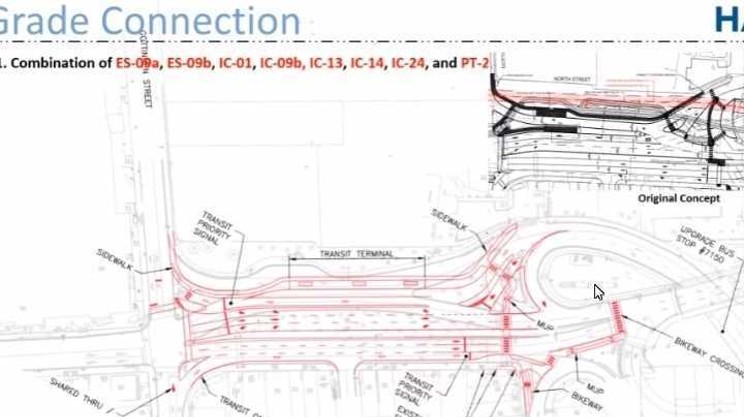The city has done a lot of good work this Budget Season, and councillors have set themselves up well for the Budget Adjustment List debates—the playoffs of Budget Season—that start Tuesday, April 2. Part of the reason for the city’s success is due to Bedford councillor Tim Outhit, who’s not running for re-election this fall. Facing his final Budget Season, back in November 2023, Outhit decided to blow up the whole budget process: Instead of the old way of taking last year’s budget and trying to jam new priorities into the city’s currently projected $1.1 billion budget, Outhit directed staff to consider council’s stated priorities first when making their budgets. And this approach led to much smoother budget debates, and in some cases better outcomes, which we’ll break down for you business unit by business unit.
The first up were the administrative business units, the Chief Administrative Officer’s office, legal and IT. The IT crowd specifically had a really strong budget year in which they saved the city some much-needed money. How did they start saving money? You’ll never believe this—a little bit of socialism. That’s right, the private sector market has become so efficient at soaking up tax dollars that re-socializing the public service is starting to lead to cost savings.
It was also a clean budget meeting from Libraries, who told councillors that audio books are a good use of funds. Council agreed they’re worth the investment and Halifax Public Libraries seems to be ready for the future.
Even though the city has officially known the suburbs were a Ponzi scheme since at least 2003, it wasn’t planning on looking at that problem until 2027. But council decided to start solving the suburbs this coming fiscal year since that’s a priority of council (good job Tim!). In 2013 this work was predicted to save the city $3 billion by 2031. Although when considering the massive spike in prices everything has taken since 2020, this would likely have saved the city closer to $4 billion.
If council decides to fund the public safety spending on the Budget Adjustment List, then Halifax will be one of the few cities in North America to have taken an honest-to-god first step in police reform. This is as unsexy as it gets, but this is exactly what lasting systemic police reform looks like. Here’s hoping council follows through on funding this year (and long may it continue if ratified later in April).
Fiscal Services’ budget was passed with no real debate. This department collects property taxes and sends them straight to the province. This money is for things that are provincial jurisdiction and should be funded by provincial revenue streams, but instead are funded through our property taxes. And since it’s property tax that goes right through the city to the province, this is the purview of the city’s money-moving department, the Fiscal Services Business Unit. They’ll move $213,654,500 in property taxes to the province to continue to subsidize premier Tim Houston’s ongoing policy failures.
With those straightforward departments done, this is where things start to take a turn for council’s performance this Budget Season. The parks budget debate was like those soccer games any Wanderers fan is familiar with. It was one of those games where you go in expecting an easy win against bottom-of-the-table Vancouver FC, lose a game you should have won, and put the playoffs in doubt.
Halifax Transit is struggling to bounce back to its pre-pandemic peak ridership levels and seems to be ignoring its guiding strategic policy. This was pointed out by members of the public, in what local YouTuber HFX by Bike has hilariously characterized as “a bunch of weirdos with statistical analyses and powerpoints absolutely pantsing gov department heads.” Transit’s also going to need more money this year because unlike our socialist automotive infrastructure, public transit is capitalist and has to run at a profit. Halifax Transit is run this way because the Department of Public Works ran it so badly back when it was still Metro Transit.
Speaking of Public Works, the DPW budget debate was a stinker. Even though Halifax’s Integrated Mobility Plan—the IMP—and the Strategic Road Safety Framework have been in effect for eight years, there has still been no real tangible evidence that Halifax is interested in achieving any of the stated outcomes in either of those strategic plans. Don’t believe me? Show me in the budget documents where DPW head Brad Anguish’s performance is judged based on achieving Halifax’s modal shift goals. When you’re back from only finding road maintenance goals, parking enforcement goals and car traffic management goals, you will no longer be surprised to learn that council passed this department’s budget and committed to spending $118 million dollars that will not help councillors achieve any of their goals as laid out in any of city’s the city’s many strategic transportation plans.
It shouldn’t have been that surprising to see the DPW budget, because a month before that meeting was the capital budget debate. And 10 years before the capital budget there was a 2013 auditor general report on Metro Transit that read foreshadowingly:
As noted earlier, there are concerns with isolating data during the time Metro Transit was part of Transportation and Public Works, yet there is one other issue which is of greater importance. One of the most significant limitations to the scope of this project was the concept of full costing and the impact this could and should have had on decision making at the management level and more importantly at Regional Council.
To be truly effective when used in benchmarks, costing needs to represent the total cost of operations and users need to be comfortable Metro Transit is being reported at some point on a ‘full’ or ‘true cost’ model. The majority of reporting done with respect to Metro Transit appears to be limited to the direct costs of operations (fuel, wages and maintenance). The more indirect costs (amortization and more specifically interest on long-term debt) tend not to be included when cost recoveries are calculated.
Because full costing is not something we do for things like “automotive infrastructure” and “suburban development,” which is weird considering the city did a full costing of the suburbs in 2013.
Anyways, the lack of trying to determine the full cost of our infrastructure and development patterns is why our capital budget passed looking like this:
And finally, in the last debate of the Budget Season, councillors deliberately decided not to examine why the IMP has been failing for the past eight years. Instead, the rest of council spurned councillor Trish Purdy for suggesting such an examination, and gloated that speed humps were making everyone less safe, except for drivers when they are driving. This was a particularly bad meeting for me personally, because I learned that my street will be affected by very bad policy this year. Regardless of council’s stated intent, the actual policy outcome of the traffic calming Administriative Order in my life is this:
- I will be safer driving my car in my neighbourhood thanks to speed humps.
- I will not be safer moving around my neighbourhood outside of my car thanks to speed humps.
- I will be in more danger in my house thanks to speed humps.
Watching councillors sneer their way to snubbing Purdy’s motion and knowing what it meant for my life gave me a panic attack. But in reality this meeting was just mostly bad, because Halifax councillors did also start to fix some of the infrastructure deficit caused by suburban development in the municipal fire department, but for more on that I’ll have to leave you to the expertise of HRM Fire News due to the aforementioned health issues.
Here are my key takeaways from the budget meeting.
— Halifax Fire News (@HRMFireNews) March 1, 2024
First off, there were three motions passed, as follows:
1. The main motion, which recommended the budget be included in the final HRM budget as it was presented today. This means all the initiatives that were presented in the…

